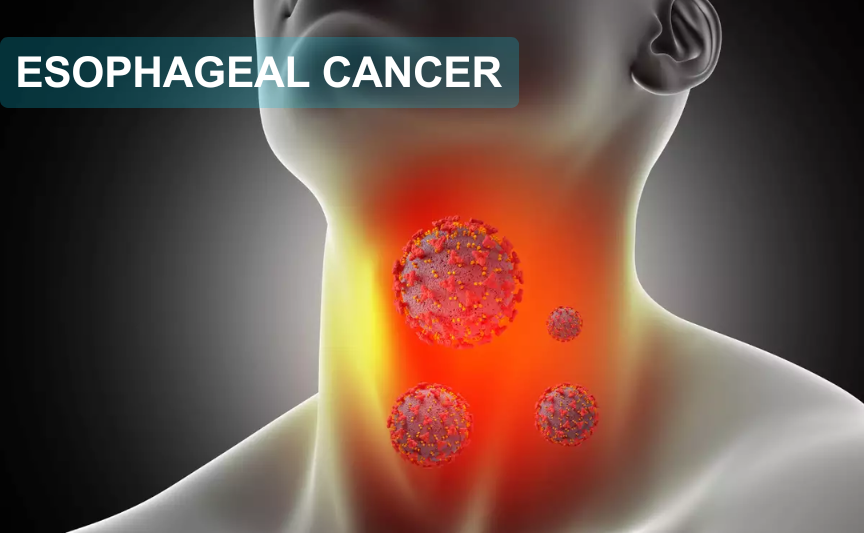Esophageal Cancer
Esophageal Cancer: Causes, Symptoms, and Treatment
Esophageal cancer is a serious disease in which abnormal cells grow in the esophagus, the
tube that carries food from the throat to the stomach. It is more common in men and often
diagnosed at later stages due to delayed symptoms. Smoking, alcohol, obesity, and chronic
acid reflux (GERD) leading to Barrett’s esophagus are major risk factors.
Symptoms of Esophageal Cancer
This cancer may not show early symptoms, but as it progresses, common signs include:
✔Difficulty swallowing (dysphagia) – First with solid foods, later even with liquids.
✔Unexplained weight loss – Due to difficulty in eating.
✔Chest pain or burning sensation.
✔Persistent heartburn or indigestion.
✔Hoarseness, coughing, or blood in vomit.
Risk Factors & Causes
✅Smoking and alcohol – Irritate and damage the esophagus over time.
✅Chronic acid reflux (GERD) & Barrett’s esophagus – Increases the risk of
adenocarcinoma.
✅Obesity – Leads to increased acid reflux and esophageal inflammation.
✅Poor diet – Low intake of fruits and vegetables, high intake of processed foods.
Diagnosis & Treatment
Doctors diagnose esophageal cancer using endoscopy and biopsy, followed by scans
like CT, PET, or EUS to assess the cancer stage. Treatment depends on the stage and
includes:
✅Surgery – The best option for early-stage cancer.
✅Chemotherapy & Radiation – Used for advanced cases or before surgery.
✅Targeted therapy & Immunotherapy – In selected cases.
✅Esophageal stents – Placed in advanced cases to help with swallowing.
Prevention & Awareness
✅Quit smoking and reduce alcohol intake.
✅Manage acid reflux early with diet and medications.
✅Maintain a healthy weight and eat a balanced diet.
✅Get regular check-ups if you have chronic GERD or Barrett’s esophagus.
Esophageal cancer is aggressive but treatable if detected early. If you have persistent
swallowing issues, consult a gastroenterologist immediately for timely evaluation and
treatment.
